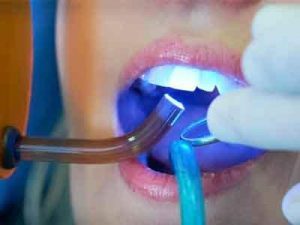- Home
- Editorial
- News
- Practice Guidelines
- Anesthesiology Guidelines
- Cancer Guidelines
- Cardiac Sciences Guidelines
- Critical Care Guidelines
- Dentistry Guidelines
- Dermatology Guidelines
- Diabetes and Endo Guidelines
- Diagnostics Guidelines
- ENT Guidelines
- Featured Practice Guidelines
- Gastroenterology Guidelines
- Geriatrics Guidelines
- Medicine Guidelines
- Nephrology Guidelines
- Neurosciences Guidelines
- Obs and Gynae Guidelines
- Ophthalmology Guidelines
- Orthopaedics Guidelines
- Paediatrics Guidelines
- Psychiatry Guidelines
- Pulmonology Guidelines
- Radiology Guidelines
- Surgery Guidelines
- Urology Guidelines
Ibuprofen, acetaminophen better than opioids in treating dental pain

Each day, more than 115 Americans die as a result of an opioid overdose, according to the National Institutes of Health and therefore prescribing narcotics should be a last resort. Anita Aminoshariae and colleagues conducted a study to evaluate whether Ibuprofen and NSAIDs alone or in combination with acetaminophen are better at providing relief from dental pain than opioids. The researchers found that, for adults, a combination of 400 milligrams of ibuprofen and 1,000 milligrams of acetaminophen was superior to any opioid-containing medications.The study has been published in The Journal of the American Dental Association
Ibuprofen and other nonsteroidal anti-inflammatory drugs (NSAIDs) alone or in combination with acetaminophen are better at easing dental pain than opioids. Opioids are not among the most effective or long-lasting options available for relief from acute dental pain, a new examination of the results from more than 460 published studies has found.
The study examining relief of acute pain in dentistry--recently featured on the cover of The Journal of the American Dental Association--evaluated the safety and efficacy of dozens of pain-relief options.
"What we know is that prescribing narcotics should be a last resort," said Anita Aminoshariae, an associate professor in the dental school's Department of Endodontics and one of the study's authors.
"No patient should go home in pain," Aminoshariae said. "That means that opioids are sometimes the best option, but certainly should not be the first option."
Aminoshariae said the goal of the systematic review was to summarize data--using five in-depth studies--of the effectiveness of oral pain medications.
"The best available data suggest that the use of nonsteroidal medications, with or without acetaminophen, offers the most favorable balance between benefits and harms, optimizing efficacy while minimizing acute adverse events," she said.
The study also found that opioids or drug combinations that included opioids accounted for the most adverse side effects--including drowsiness, respiratory depression, nausea/vomiting, and constipation--in both children and adults.
Constipationdental paindepressionibuprofenJournal of the American Dental Associationnonsteroidal anti inflammatory drugsNSAIDsopioidspain medications
Source : With inputs Journal of the American Dental AssociationNext Story
NO DATA FOUND

Disclaimer: This site is primarily intended for healthcare professionals. Any content/information on this website does not replace the advice of medical and/or health professionals and should not be construed as medical/diagnostic advice/endorsement or prescription. Use of this site is subject to our terms of use, privacy policy, advertisement policy. © 2020 Minerva Medical Treatment Pvt Ltd